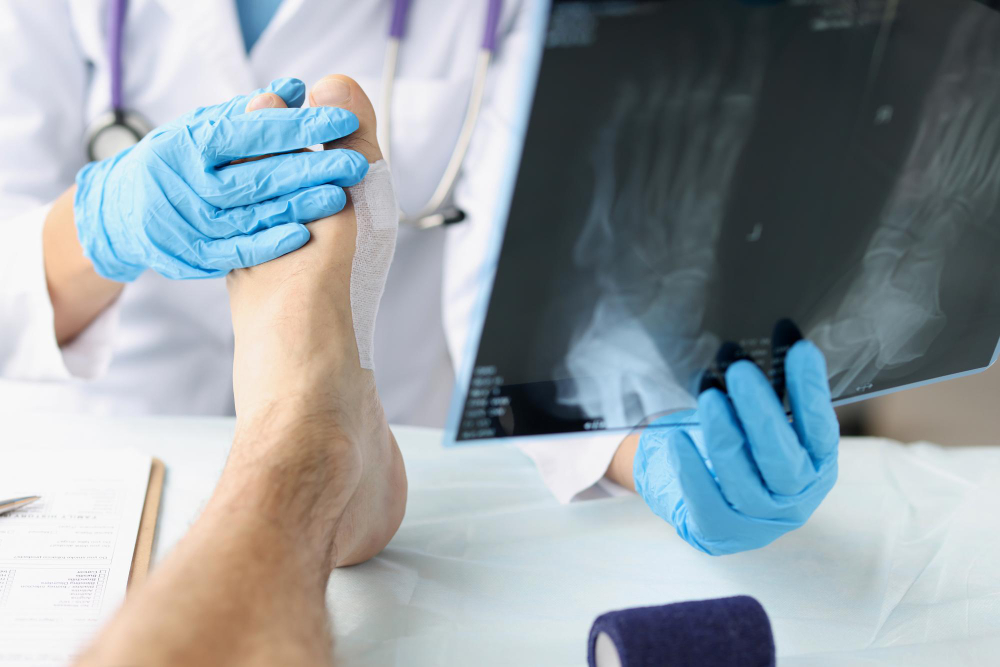Sports Medicine
Sports medicine is a specialized branch of healthcare that focuses on the treatment, prevention, and management of injuries and conditions related to physical activity, exercise, and sports participation. Whether you’re a professional athlete, a recreational enthusiast, or someone looking to lead a healthy and active lifestyle, sports medicine plays a crucial role in optimizing performance, preventing injuries, and promoting overall well-being.
Key Components of Sports Medicine:
- Injury Prevention and Education: Sports medicine professionals provide education and guidance on proper training techniques, warm-up routines, and equipment use to reduce the risk of injuries during physical activities. They help individuals understand the importance of gradual progression and balanced workouts to avoid overuse injuries.
- Treatment and Rehabilitation: In the unfortunate event of an injury, sports medicine specialists diagnose and treat a wide range of conditions, from minor sprains to complex orthopedic injuries. They design personalized rehabilitation programs that focus on restoring strength, mobility, and function, ensuring a safe return to activity.
- Performance Enhancement: Athletes of all levels can benefit from sports medicine expertise to improve their performance. Specialists offer training programs, biomechanical assessments, and nutritional guidance to optimize athletic potential and achieve peak performance.
- Concussion Management: Sports medicine professionals are trained to assess and manage concussions, a common injury in contact sports. They ensure athletes receive appropriate care, monitor recovery, and guide a safe return to play.
- Nutrition and Hydration: Proper nutrition and hydration are essential for athletes to perform at their best. Sports medicine professionals provide guidance on balanced diets, hydration strategies, and supplements to fuel workouts and aid in recovery.
- Exercise Prescription: Sports medicine experts tailor exercise programs to meet individual goals, whether it’s weight loss, muscle gain, or improving cardiovascular fitness. They take into account medical history, physical condition, and specific needs to create effective and safe workout plans.
- Regenerative Medicine: Advanced techniques like platelet-rich plasma (PRP) therapy and stem cell treatments are used to promote healing and tissue regeneration in injuries.
Who Benefits from Sports Medicine?
- Professional Athletes: Sports medicine helps elite athletes recover from injuries quickly and perform at their best, contributing to their competitive edge.
- Recreational Athletes: Weekend warriors and fitness enthusiasts benefit from injury prevention strategies and expert guidance to enhance their active lifestyles.
- Active Individuals: People engaged in regular physical activity can receive personalized care to maintain their health and address any exercise-related concerns.
Some of the common sports injuries include:
Foot and Ankle Injuries
Foot and ankle injuries happen when the lower part of the leg gets hurt, like below the knee. These injuries are common in sports like football, hockey, and skating. Some usual injuries are sprains, strains, broken ankles, and sore Achilles tendons. To make these injuries better, doctors might use things like special shoe inserts, braces, exercises, shots, or even surgery.


Shoulder Injuries
If your shoulders hurt a lot when you’re playing sports you love, like tennis, basketball, or gymnastics, it could be because a part that holds your shoulder together is torn or the shoulder bone is out of place. This might happen because you use your shoulder too much while playing. If the pain is just normal or if you got hurt recently, doctors can help you feel better without surgery. But if the problem has been there for a long time, you might need an operation to fix it.
Hip Injuries
Fractures in the thigh bone, tears in the hip’s labral tissue, and hip joints getting out of place are some usual sports injuries that can affect the hip. The hip joint has to carry a lot of weight and can easily get hurt while playing sports. If you hurt your hip, it’s important to see a doctor right away to stop things from getting worse. After the doctor helps you, you might need to do exercises to make your muscles stronger and move better. This will happen during a special program to help you get better, and you might also do exercises with a therapist.


Knee Injuries
The front ligament in the knee, called the anterior cruciate ligament (ACL), helps keep the knee stable. Sometimes, it can tear when you use it a lot during sports. The ACL doesn’t heal very well, and this might make your knee feel wobbly. Other knee injuries from sports include problems with the cartilage and tearing of a piece in the knee called the meniscus.
If you hurt your knee during sports, you might need an operation. There are two ways to do it: one where they make a big cut, and another way that’s smaller and less invasive. Your doctor will decide which way is best for you.
After the operation, you’ll need to do special exercises to make your muscles stronger and help your bones and joints move better. This will help you get back to doing the things you love.
Sports Medicine Topics
Click on the topics below to find out more from the orthopaedic connection website of American Academy of Orthopaedic Surgeons.














